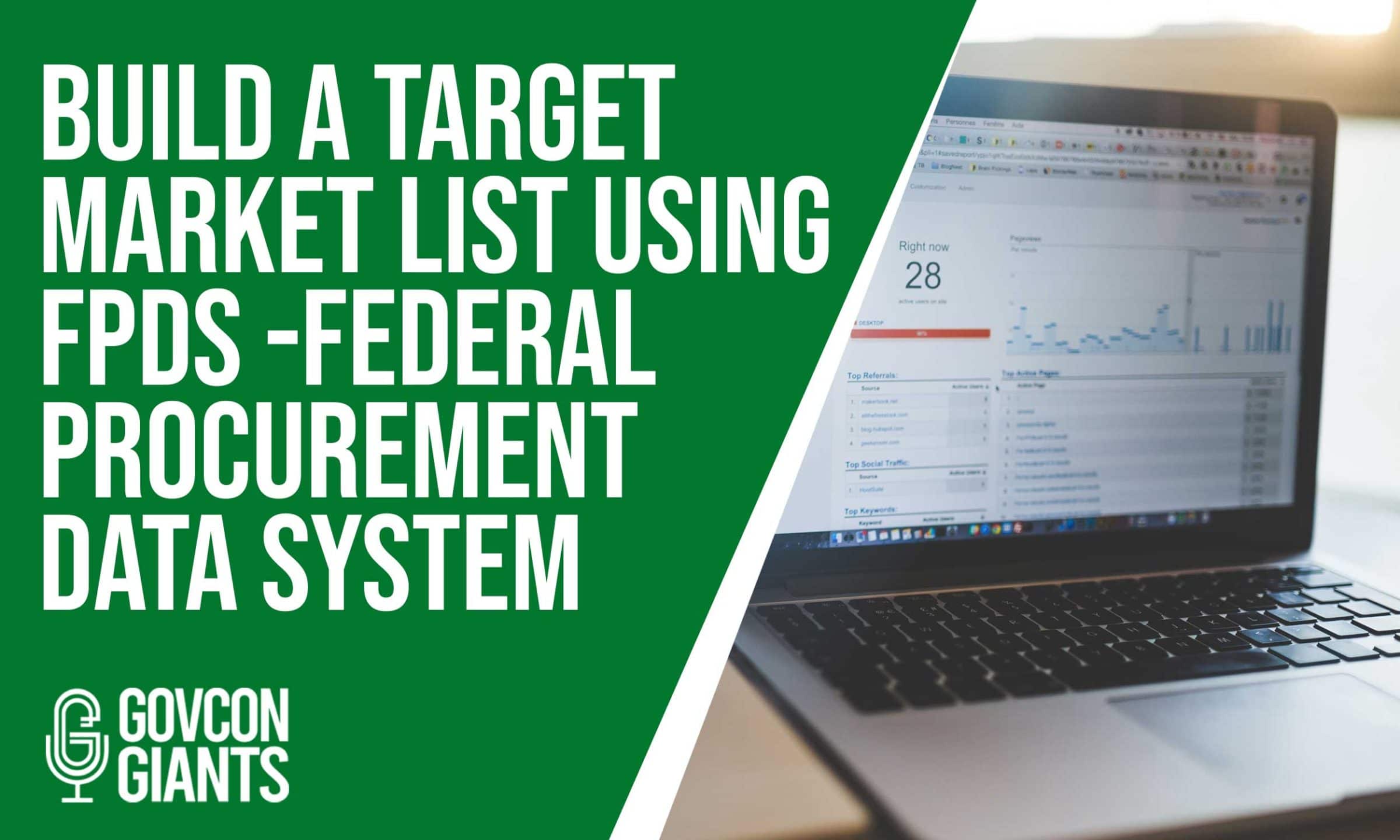You have to be prepared for an administrative burden when you start to do business with the federal government. Sonia Mundra, President of Chenega Analytics Business Solutions has provided us insight on how taxing and expensive government contracting can actually be.
However, Mundra is dedicated in sharing her expertise and helping entrepreneurs and businesses effectively navigate the process. Her discussion also provides an insider’s look into the tools and forming the right mindset needed in order to be successful in federal contracting.
ABOUT SONIA MUNDRA AND CHENEGA ANALYTICS
Last 2017, Ms. Sonia Mundra became the President of Chenega Analytics Business Solutions (CABS), a subsidiary of Chenega Corporation. They have been doing business with the federal government contracting community since 1989.
Ms. Mundra has over 15 years of combined experience as a Certified Public Accountant, Project Management Professional (PMP), and a certified Government Blockchain Consultant.
She is the professional that you’d want to consult when you consider diving into federal contracting processes and blockchains. She has assists federal and commercial agencies to implement information solutions that include storage, digitization, data migration, cloud storage, and security.
CABS is also a small disadvantaged business (SDB) who received its 8(a) certification last September 2018. They are also an Alaska Native Corporation (ANC), that enables them to receive direct awards from all federal government agencies up to $22M without the need for justification and approval.
Their current contracts and past performance have nearly included all DoD agencies, DHS and most Fed Civ agencies.
NUMBERS AND CUSTOMER RELATIONSHIPS
Ms. Mundra has always been a numbers oriented person. But she advises businesses to not replace communication and relationships by relying purely on SLA’s as she believes it is a very tone-deaf thing to do.
“Customers still need TLC (Tender Love and Care) at times. And you gotta reach out and touch them to make sure that relationship is good,” she says.
SLAs or Service Level Agreements defines the level of service expected by a customer from a supplier. It lays out specific metrics that customers can answer or leave as a feedback.
Although SLAs are a critical component for any outsourcing and technology vendor contract, SLA can SLA metrics will vary depending on the services being provided. But its approach should be kept as simple as possible to avoid confusion and excessive costs.
CALCULATING PROBABILITY OF WIN
Truthfully, you won’t be able to see your future without looking at your past performances. Your previous stats are actually a great source for insight to your PWIN. However, what is Probability of Win, exactly?
Probability of Win (PWIN) is by its name the probability of winning a particular opportunity. It is a tool that can help you assess where you stand at a given point in time.
Although Ms. Mondra says that PWIN can be quite subjective. But when used properly, it can help financially-oriented people to weigh in the financial value of a project and assist capture-oriented individuals to assess where they are on the opportunity.
In federal contracts, PWIN is used in competitive bidding.
Competitive Bidding is the process when companies will put together their best proposal and compete for a specific project. The bidding is actually beneficial because it makes the environment competitive which means that small agencies are able to keep up with larger companies since the costs will remain low.
And the government issuing the project can simply wait to look for the most qualified companies to do the work.
TOOLS BEING USED BY BUSINESS ANALYTICS
In addition, knowledge has always been power. And so with tools like calculator for PWIN, we have Deltek GovWin IQ and beta.SAM.gov.
These are critical resources in developing and refining a long term growth strategy especially with business developments that deal with selling to the federal or public sector.
In order to optimize your sales processes, government bids and contract awards, GovWin and BetaSam are tools that’ll assist you in planning in advance for Government Bids, Request for Proposals and Contract Vehicles that are to be released even before taking action.
They are vital for those companies who are looking to piece together a proactive business development strategies. These platforms cover opportunities that range from months to even years before contracts go out to bid.
These tools can also help your government sales team in developing a long-term actionable pipeline. And it is a foolproof strategy in getting ahead of the competition.
Because, by arming yourself with more information than your competitors. Companies will use these tools to identify which agency contacts, spending trends and government purchasing history can help build a powerful proposal for the bids.
UNDERSTANDING BLOCKCHAINS
If you have been following banking, investments, or cryptocurrency, you may be familiar with “blockchain”, the record-keeping technology behind the Bitcoin network.
“A blockchain is essentially a distributed ledger,” says Ms. Mundra.
Blockchains or also referred to as Distributed Ledger Technology (DLT) has the potential to eliminate huge amounts of record-keeping. It can also save money, streamline supply chains and disrupt I.T. in ways that we haven’t seen since the internet arrived.
A blockchain in simple terms, is a time-stamped record of data. It is managed by a cluster of computers but isn’t owned by a single establishment. Each of these “blocks” of data are secured and are bound together using cryptographic principles or “chains”.
In Ms. Mundra’s words, “Blockchains ensure that what you are consuming is clean. This means that it is a fair trade that’s devoid of foreign corrupt practices such as child labor, human traficking and more.”
THE 4 BIRDS PERSONALITY TEST
Ms. Sonia Mundra also opened up that when advancing to being the top management in her field, she needed more than technical skills and willingness to work hard.
She also needed to improve her few soft skills that helped her to take her career as far as it could go.
Whether it was to practice discipline, take on more projects, learn to develop situational awareness, and inspire others, she believes that being a leader means that you are part of a team. That you are inspiring collaboration with encouragement and guidance.
And the best part of becoming a good leader is that it resolves conflicts instead of ignoring them or hoping they will go away. But each individual needs a unique approach. And one way to be an effective leader is to become a discerning listener.
One can do this by learning a lot more about who you work with with a simple D.O.P.E. Bird personality test.
This test doesn’t need you to become a psychologist. Instead, it is a fun and useful tool that notes down an individual’s different characteristics, strengths, motivation and experiences.
However, these bird types do not pin down who or what you really are in life. But it can be an interesting way to find out more about others and yourself.
But why does it have birds in it?
Each bird represents a trait. The Doves are peaceful and friendly, the Owls are wise and logical. The Peacocks are showy and optimistic, and the Eagles are bold and decisive.
A person will have a combination of these types. However, just keep in mind that they must not be used as a psychological assessment of your life.
3H LEADERSHIP (HUNGRY, HUMBLE & HUSTLE)
Lastly, although one can prepare to be a leader. One shouldn’t forget that there are things that we can’t control. The H3 Leadership provides a practical outline for implementing and living out the transformational habits of a great leader.
However, will all the adversities you’ll face. One should always strive to remain hungry, humble and hustle.
Because at the end of your journey, will you become someone who is willing to work hard and get things done? And can you make sure that it won’t be about others are treating. But how you treat yourself.
And ultimately, how transformative you can be that you can influence others to do the right habits to succeed.
RESOURCES
If you want to watch the full video with Sonia Mundra, be sure to click on the link below to redirect you to our YouTube channel where I share free content about the government contracting process as well as my interviews with other GovCon giants.
055: Doing Business as an Alaskan Native Corporation (ANC) with Sonia Mundra – Eric Coffie





 This is something we should all be reflecting on daily. How to evolve and adapt just as nature does. Learning, growing, analyzing, refocusing and restructuring, in order to turn things around in our lives. If you are an entrepreneur and/or will be working in federal contracting, this is key to the foundation of your business and your well-being.
This is something we should all be reflecting on daily. How to evolve and adapt just as nature does. Learning, growing, analyzing, refocusing and restructuring, in order to turn things around in our lives. If you are an entrepreneur and/or will be working in federal contracting, this is key to the foundation of your business and your well-being.




